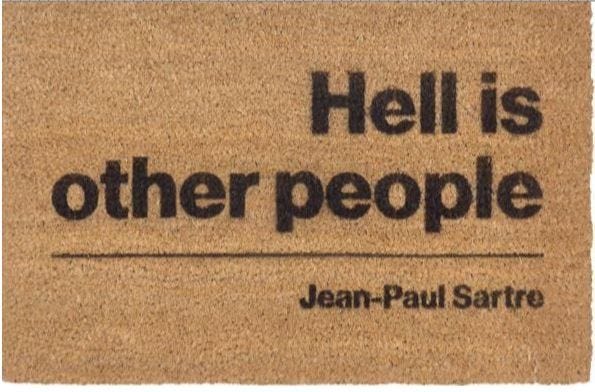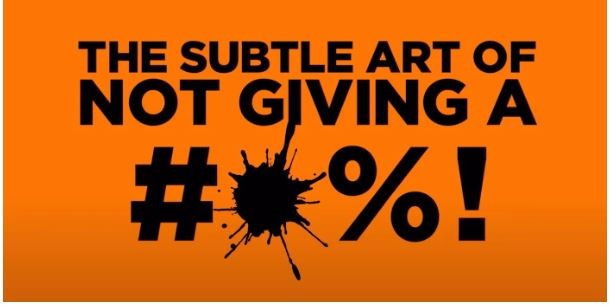Blaming Me, Blaming You. Is This The Best We Can Do?
A blaming culture in the workplace is like a hole in head, so why some of us keep doing it? Have you ever blamed others unnecessarily or been a victim of this insidious game? Let's talk about it.
Working in an agency is not easy. Seriously, you never have enough time and never enough resource, and for those who have this unshakable belief that everything can be sorted with a to-do list, let me tell you something… it is pointless. Your list is likely to be either unrealistic or doomed to never be up to date with the amount of work being thrown at you constantly. And this makes the gap between you and being crowned employee of the month even more unachievable.
Agency life is tough! We all juggle between “URGENT” team messages, back-to-back meetings where someone will inevitably say “You’re on mute” followed by BAU agency drama that requires a lot of patience and teeth-grinding to deal with. But we have to keep our heads down and get through the day.
However, when anything that could go wrong does go wrong; for instance your campaign has exhausted its budget and you have now a 5-digit overspend. Check. Sending creatives to your clients with the wrong logo. Check. Receiving a blunt email from your colleague that shatters your confidence. Checkmate!
When all hell breaks loose and you feel left down by your colleagues, you might be thinking, was Jean-Paul Sartre right ?
Outstanding projects, campaigns, and presentations are only possible when people work together. But the more we do, the higher the chances of miscalculations or for lack of a better word, f**kups can happen. Then the proclivity of some to point out errors is warming so much it is not just the roof that is on fire, it is the entire agency.
But why do we blame each other when we all know it doesn't help and makes things worse? Could it be because we are highly incentivised to believe that we are “a family”? To be honest it could be a good reason; I still blame my sister for the 90s CDs she lent to her friends’ that got lost! But really, what is behind this tendency to nurture willingly and unwillingly a blaming culture at work?
First off, what is a blaming culture? This is the best ingredient that will turn a stressful environment into a detestable toxic environment. And when it is settled, employees are frequently and unapologetically singled out, blamed, and criticised for mistakes and errors that have taken place.
Another pleasant characteristic of a blaming culture is that people become increasingly reluctant to accept responsibility for their actions and mistakes. Often this is due to the fear of having to deal with an avalanche of criticism via teams email, but also being reprimanded by their managers.
But the worst consequence is that employees who are the victims of this blaming game will become unwilling to take risks, be innovative and raise their voices which is crucial when you work in an agency.
According to HR research blaming culture has serious business repercussions
Higher levels of staff turnover
Reduced work engagement productivity
Decision escalation or continually referring to managers for decisions
Lower levels of organisational performance
Reduce levels of job satisfaction
But why do we do it, why?
Well, if there is one common theme across things that prevent us from growing, it is that it is easy. Like it is easy to be promiscuous, mess around, and not be in a committed relationship. Like it is easy to eat junk food rather than take the time to chop, wash and cook. Or like it is so easy to check your phone anytime you get bored when you can be fully present. Easy equals cheap, and the last time I checked, cheap doesn't mingle well with quality.
All those ideas are sublimely explored in “The Subtle Art of Not Giving a F*CK by James Clear. Not a life-changing book but it does have the merit to give a good slap to those who didn't get the memo that accepting responsibility for your problems is the first step to solving them!
Without sounding too much like a cheap life coach, it is important to understand that taking responsibility for a problem in your professional or personal life, doesn't mean that you are at fault. When involved in a project, we are all one way or another contributing to the end result, and therefore we could all be part of the problem.
Blaming is also very convenient because it does not require you to fully or truly justify your views. There might be different causes for the same problem and they might have contributed differently, but who has the time to play Sherlock Holmes?
Consequently, looking for simple causes rather than complex ones is bound to give a very avant-garde blurry picture of the situation. Assigning counterfactual thinking is much more challenging as it involves the ability to create possible alternatives to an event that has already occurred.
If A & B work together and the result is bad, what would have happened if A worked with C or D? You can then also ask yourself, what would have happened if A & B worked on a different day or a different project, would the result still be the same?
According to UCL researcher David Lagnado, there are two main reasons that push us to blame. One is backward-looking where the blamer wants retribution and punishment, whilst the other is forward-looking, where a person is driven by a desire to improve behaviour and results.
So, is that it? Is blaming a more civil and sophisticated form of punishment that we inflict on others and ourselves when we do not meet specific standards?
Whenever I speak to ‘overachiever’ colleagues who stay late and arrive early, I always feel sorry to see them getting lost in “blaming land”. They feel they are never good enough, and that their work is never good enough. It is as if they are running the marathon of shame with no finishing line. But when asked simply if all those blames are actually helping them or their performance to get better? They know deep down the answer is no.
So, whether you are blaming others or blaming yourself for anything bad that happens in life, let me tell you something else, you’re just backing a losing team. Being part of the solution team, on the other hand, is not always fun at the beginning but it does have the merit to give you clarity on what you and others can and cannot do.
And that my friend is the least we can do.







